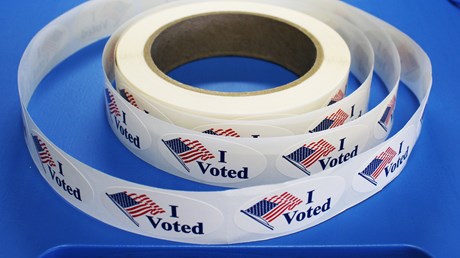A Christian approach to politics frees us from duty or strategy.

This presidential election serves as an invitation for Christians to reconsider the grounds of our political participation. At no other time in memory have both major party candidates been so unfavorable. As surveys indicate, many voters will go to the polls, not to vote for a candidate, but to vote against a candidate. As one commentator put it, “Forget ‘which candidate would you rather have a beer with.’ This year, many voters are going to base their pick on who ‘they’d like to throw a beer at.’”
For Christians, the historic negativity of this election is compounded by the stark reality that neither major party candidate exhibits the beliefs and practices of the evangelical community, a notable change from the commonplace appeals to evangelicals in the elections of the past several decades. The sense of alienation that results may cause Christians to go to the polls out of anger, voting against a candidate or in protest of both. Or, in their despondency, Christian voters may not show up to the polls at all.
Yet, if we feel disempowered as individual voters, we should not be discouraged. The individual vote has never been particularly consequential. The vast majority of electoral races are foregone conclusions: Only 90 of the 435 congressional districts up for election in 2014 were considered “competitive,” and even these were decided by a vote margin up to 5 percent. For those fortunate enough to live in a competitive electoral context such as a swing state, the sheer size of the electorate renders the possibility of one voter being the deciding factor statistically infinitesimal. Acting as if a single vote were consequential is equivalent to playing the lottery.
Firmer …
Source: Christianity Today Most Read